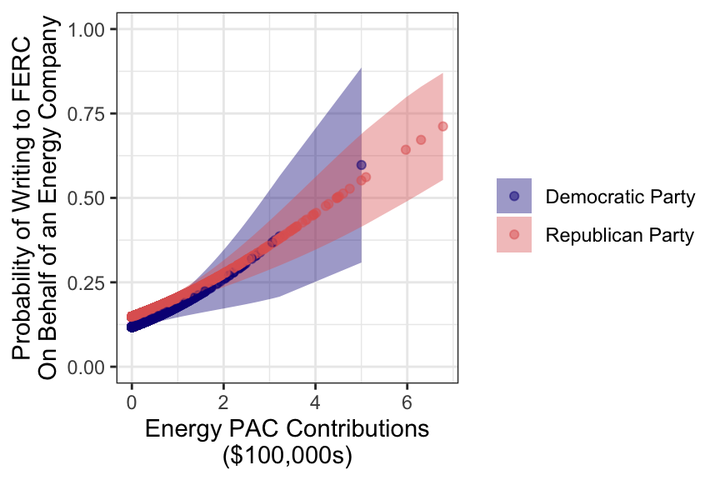We use letters that legislators write to the Federal Energy Regulatory Commission to study congressional attempts to influence bureaucratic decisions. Analyzing thousands of letters that legislators sent to the agency over nearly two decades, we find that these letters are filled with specific references to companies that legislators seek to assist or about which the legislator’s constituents have complaints. We explore which legislators seek to influence the agency, on whose behalf legislators advocate, and the kinds of outcomes they attempt to influence. We find that most individual constituent letters oppose proposed energy projects, but most non-constituent letters advocate in favor of named businesses. Finally, we assess whether legislators’ advocacy behavior is related to the campaign contributions they receive from the energy industry. We find that Republicans and those who receive money from the energy sector write to advocate for energy companies, but not their constituents, while Democrats write comparatively more letters in opposition to energy companies. Campaign contributions are much stronger predictors of pro-business advocacy than other kinds of attention to energy issues, such as energy-related constituency service or advocacy against energy projects. For example, a legislator who receives $200,000 from the energy sector is twice as likely to write advocating on behalf of an energy company than a legislator who received no energy-sector money but no more likely to write on behalf of their constituents or in opposition to an energy project.
Legislator Advocacy on Behalf of Constituents and Corporate Donors
A Case Study of the Federal Energy Regulatory Commission
